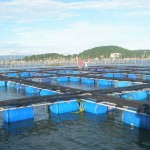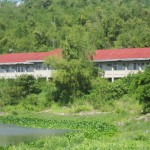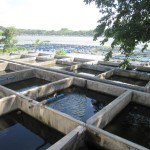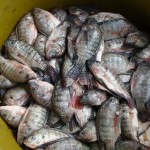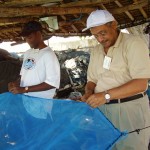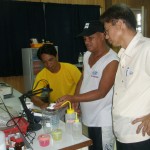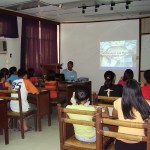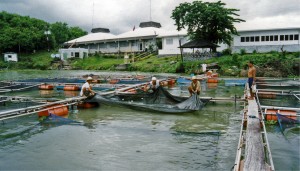 The Binangonan Freshwater Station (BFS) of SEAFDEC Aquaculture Department is strategically located at Tapao point along the north shore of Laguna de Bay. BFS was established in 1976 to undertake research on freshwater aquaculture and lake ecology. It also offers extension services and trainings in fish farming in pens, ponds, tanks and cages.
The Binangonan Freshwater Station (BFS) of SEAFDEC Aquaculture Department is strategically located at Tapao point along the north shore of Laguna de Bay. BFS was established in 1976 to undertake research on freshwater aquaculture and lake ecology. It also offers extension services and trainings in fish farming in pens, ponds, tanks and cages.
BFS Facilities
- Laboratory
- Natural food laboratory
- Land-based tanks
- Lake-based cages
- Hatchery
- Dormitory/housing
Research priorities
SEAFDEC/AQD’s research studies at BFS focuses on giant freshwater prawn, bighead carp, catfish, and tilapia.
Giant freshwater prawn
- Conducted research, verified and demonstrated hatchery and grow-out culture of giant freshwater prawn Macrobrachium rosenbergii.
Bighead carp
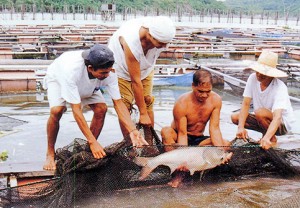 Pioneered the research and development of the culture and artificial propagation of the bighead carp in the Philippines
Pioneered the research and development of the culture and artificial propagation of the bighead carp in the Philippines- Bighead carp has become a major aquaculture species of Laguna de Bay primarily because of the efforts of the station.
Catfish
- Established broodstock management and breeding techniques for captive native catfish, Clarias macrocephalus
- Improved catfish hatchery, nursery and culture techniques; further studies are underway.
- Introduced the lake-based culture of tilapia in Laguna de Bay and promoted the raising of hybrid red tilapia
- Studied genetic variation among Nile tilapia and developed a method for selecting successful broodstock that small-scale farmers can use.
Research projects
Rinconada lakes project (2006-2009) in Camarines Sur with funds from Australian Center for International Agriculture Research (ACIAR)
Smallholder freshwater aquaculture program involves research, technology verification / demonstration and training activities that are focused on the development of optimal breeding, seed production and grow-out culture strategies for regionally important freshwater commodities such as the giant freshwater prawn, Asiatic carps, tilapia, catfish and indigenous freshwater fishes. Apart from improved fish/prawn seedstock production and husbandry schemes that are packaged into aquaculture business technologies, the program also promotes the implementation of effective health management strategies for all farmed species for sustainable production.
Training and extension
To pass on the technologies that the station developed, BFS takes an active part in the Department’s training programs:
- Training course on freshwater aquaculture for local participants and representatives from SEAFDEC member countries
- On-the-job training for undergraduate students
- Internship training for college graduate
- Special training arranged for foreign and local participants
- Graduate student thesis program
BFS also established partnerships with other institutions and private investors to assist them in freshwater aquaculture from site selection, construction of facilities, production run to harvest.
 SEAFDEC/AQD Southeast Asian Fisheries Development Center | Aquaculture Department
SEAFDEC/AQD Southeast Asian Fisheries Development Center | Aquaculture Department
